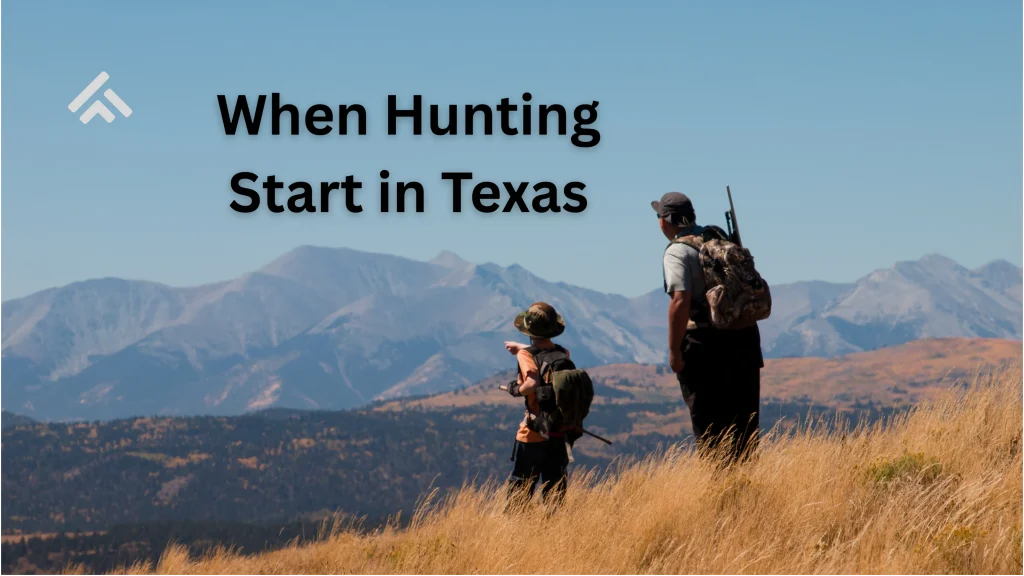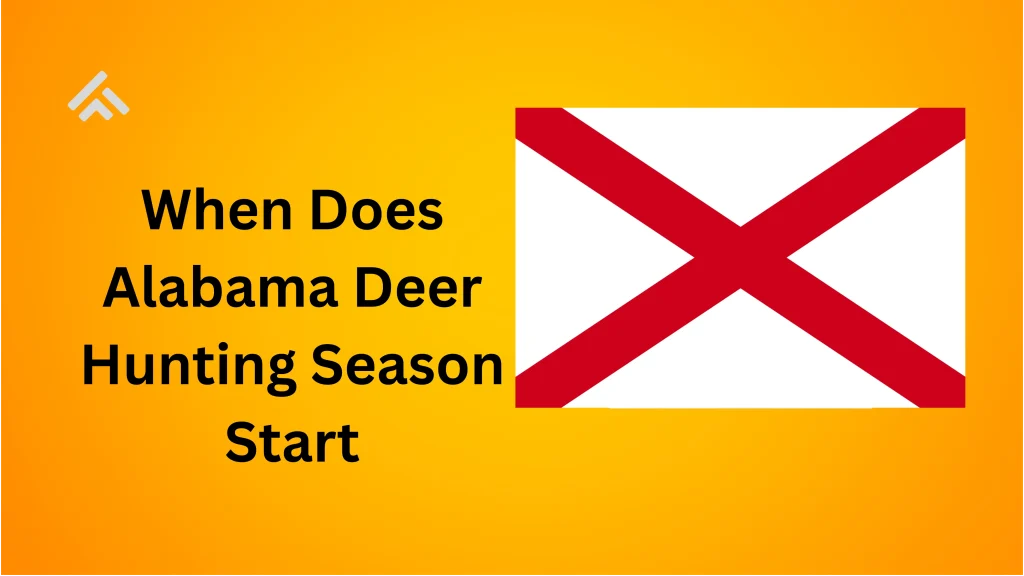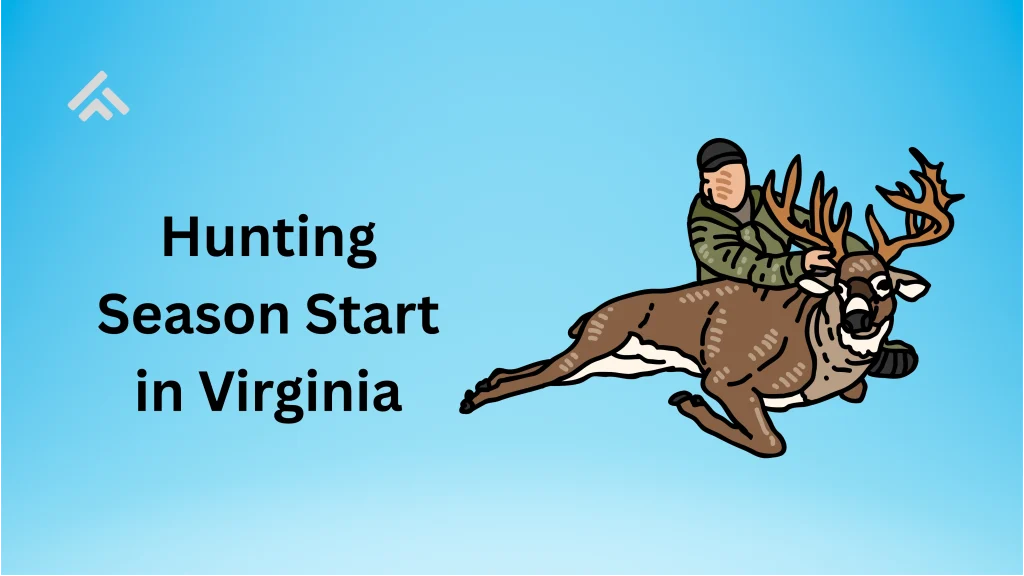The start dates of hunting season in Texas is essential for every hunter. It helps plan trips, secure permits, and follow legal requirements. Missing the season can lead to fines or missed opportunities for hunting. Being aware of dates ensures hunters stay within the rules, respecting both the environment and wildlife.
Hunting in Texas is a popular outdoor activity. The state offers a variety of species to hunt, from deer and turkey to waterfowl and exotic animals. Texas has specific hunting seasons for each animal, which are regulated to maintain balanced wildlife populations. Hunters need to be aware of these dates to hunt legally and safely.
Table of Contents
Texas Hunting Seasons
Texas offers a wide variety of hunting opportunities throughout the year. Each type of game has its own designated season, and these dates are regulated by the Texas Parks and Wildlife Department (TPWD) to ensure sustainable wildlife populations. Understanding the start and end dates of these seasons is crucial for hunters to stay within legal limits and make the most of their hunting experiences.
The general hunting season for white-tailed deer begins in early November and typically ends in early January. However, the exact dates can vary by region. Turkey hunting season starts in late March and runs through May, with different dates for the North and South Zones. Waterfowl hunting, including ducks and geese, usually starts in November and continues until January, following both federal and state regulations.
For those interested in hunting doves, the season kicks off in early September and is divided into multiple segments, including one in late December and another in early January. Additionally, hunting exotic animals such as axis deer and aoudad is available year-round, although there are specific rules that apply to these species.
Hunters should always check the TPWD’s official Outdoor Annual or the Texas Hunt & Fish app for up-to-date information on season dates, bag limits, and any special regulations to ensure they are hunting responsibly and legally. Planning to hunt out of state? Here are Alabama’s deer season dates.
Start Dates for Different Hunting Seasons
White-tailed Deer Hunting Season
The white-tailed deer hunting season in Texas is divided into several segments. The archery-only season starts on September 28 and lasts until November 1, 2024. The general hunting season for deer begins on November 2, with dates varying by region: in the North Zone, the season ends on January 5, 2025, and in the South Zone, it extends until January 19, 2025. There are also youth-only seasons set for October 25–27, 2024, and January 6–19, 2025, in both zones. Additionally, special late-season hunting is available from January 6–19, 2025, in both zones.
Turkey Hunting Season
The turkey hunting season in Texas is split between spring and fall. The spring turkey season begins in late March and runs through May, with specific dates depending on the zone. The fall turkey season typically starts in late October and early November, again with dates varying by region. These seasons allow hunters to pursue both Eastern and Rio Grande wild turkeys, with varying regulations based on location.
Waterfowl Hunting Season
Waterfowl hunting in Texas covers both ducks and geese. The general duck season begins in early November and lasts until early January. Goose hunting starts around the same time and runs through January as well. Specific dates for each zone are determined by both federal and state regulations, ensuring that hunters follow legal requirements for waterfowl hunting.
Exotic Animal Hunting
Exotic animal hunting, including species such as axis deer and aoudad, operates under different rules in Texas. These animals are typically available for hunting year-round, though specific regulations may apply depending on the species and region. Hunters interested in exotic species should check for any special restrictions or rules before heading out.
Javelina and Squirrel Hunting Season
The javelina hunting season begins in September, with dates differing by region. The North Zone typically runs from October 1, 2024, through February 23, 2025, while the South Zone extends from September 1, 2024, through August 31, 2025. For squirrel hunters, the season starts in October, depending on the region. The youth-only squirrel hunting season is set for September 27–29, 2024, in East Texas. Hunters should check local regulations to ensure they are compliant with the rules.
Factors That Impact Hunting Season Start Dates
Wildlife Conservation Efforts
Hunting season dates in Texas are largely influenced by wildlife conservation. The Texas Parks and Wildlife Department (TPWD) sets these dates to ensure healthy animal populations. Regulating hunting seasons helps animals breed and grow without the threat of overhunting, maintaining a balanced ecosystem.
Weather Conditions and Habitat
Weather also impacts hunting season dates. Texas has diverse climates, and factors like temperature and rainfall affect animal behavior and migration. For example, migratory birds like ducks follow weather patterns, which influence the start of waterfowl hunting season. Extreme weather conditions can lead to adjusted dates or restrictions to protect wildlife.
Hunter Safety and Education
Safety is a key factor in setting season dates. TPWD ensures hunters complete required safety courses before hunting. Dates are chosen to allow time for education, ensuring hunters are prepared and aware of regulations, especially when multiple hunting seasons overlap.
Federal and State Regulations
Hunting dates are influenced by both state and federal laws. Migratory bird hunting seasons, for instance, are set by the U.S. Fish and Wildlife Service. Texas coordinates with federal agencies to align state dates with national guidelines.
Species-Specific Considerations
Each species has unique needs, and hunting seasons are adjusted to avoid interfering with their breeding cycles. For example, deer seasons are scheduled to protect fawning periods, and other species like turkey or javelina have seasons tailored to their reproductive needs.
Hunting Regulations in Texas
General Hunting Regulations
In Texas, hunting is regulated by the Texas Parks and Wildlife Department (TPWD). Hunters need the proper licenses, with specific permits required for certain animals like deer, turkey, or waterfowl. Bag limits are set to ensure healthy wildlife populations, and hunters must follow these limits to prevent overhunting.
Weapon and Equipment Restrictions
Texas has rules on which weapons and equipment can be used. Rifles, shotguns, and archery gear are allowed for various species, but certain restrictions apply. For example, during archery season, only archery equipment can be used, and some areas have specific ammo requirements, like non-lead ammunition.
Hunting on Public vs. Private Land
Hunting on private land requires the landowner’s permission, and private landowners may have additional regulations. Public land hunting requires a permit, and each public area has its own specific rules, such as designated hunting zones and restrictions on game types.
Reporting and Tagging Game
Hunters must tag and report certain species like deer immediately after harvesting. This helps monitor wildlife populations and ensures compliance with bag limits. Failure to report or tag game properly can result in penalties.
Hunter Education Requirements
Hunters born after September 2, 1971, must complete a hunter education course before purchasing a license. The course covers firearm safety, ethical hunting practices, and Texas regulations. It can be completed online or in person.
Conclusion
Knowing when hunting season starts in Texas is important for hunters to stay compliant with regulations. Each hunting season has specific dates based on the type of game and location. Being aware of these dates helps hunters plan and enjoy their hunting experience while respecting wildlife laws.
Remember, it’s crucial to stay updated on any changes in hunting seasons and regulations. Checking resources like the Texas Parks and Wildlife Department’s website ensures you are well-prepared and avoid penalties. Hunt responsibly and follow the guidelines for a safe and successful season.



